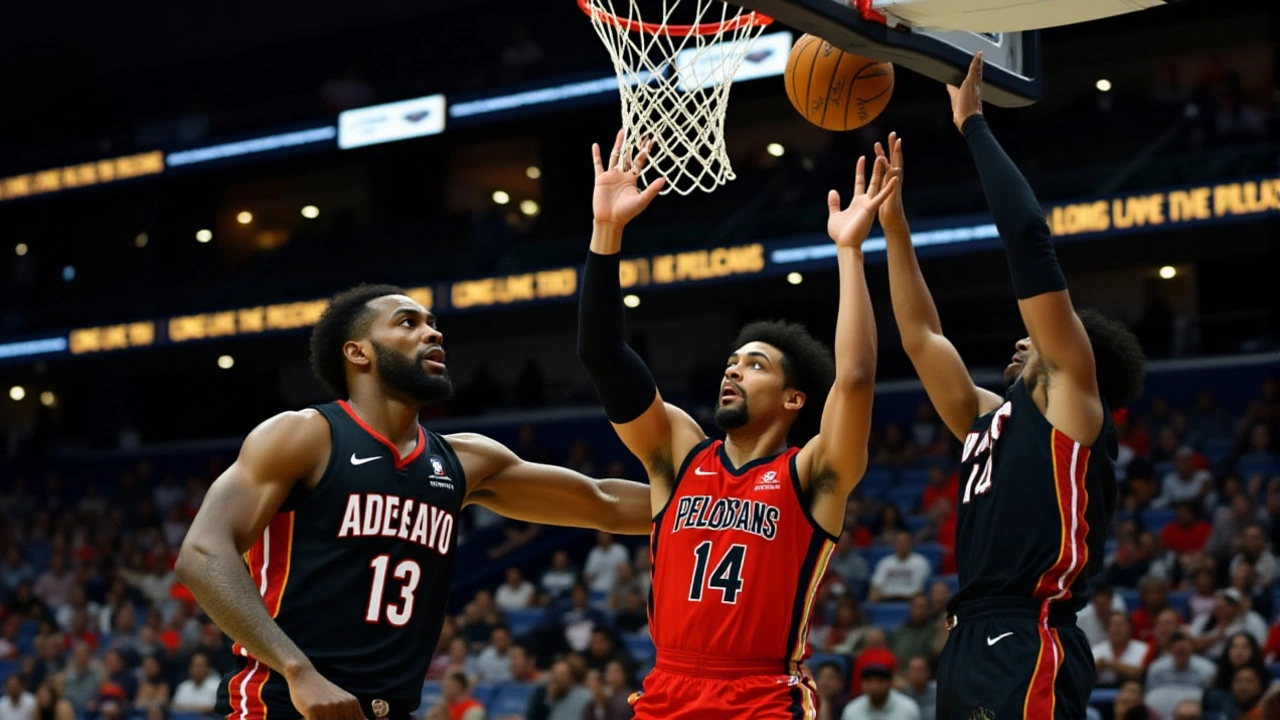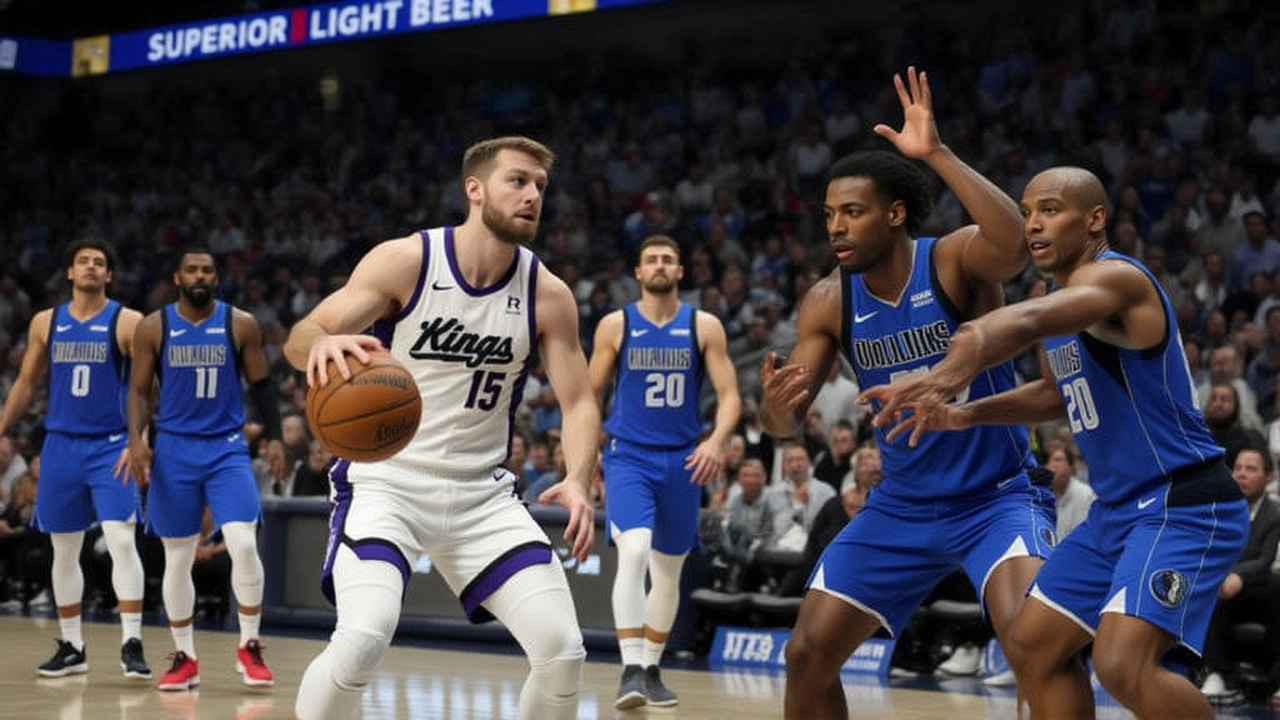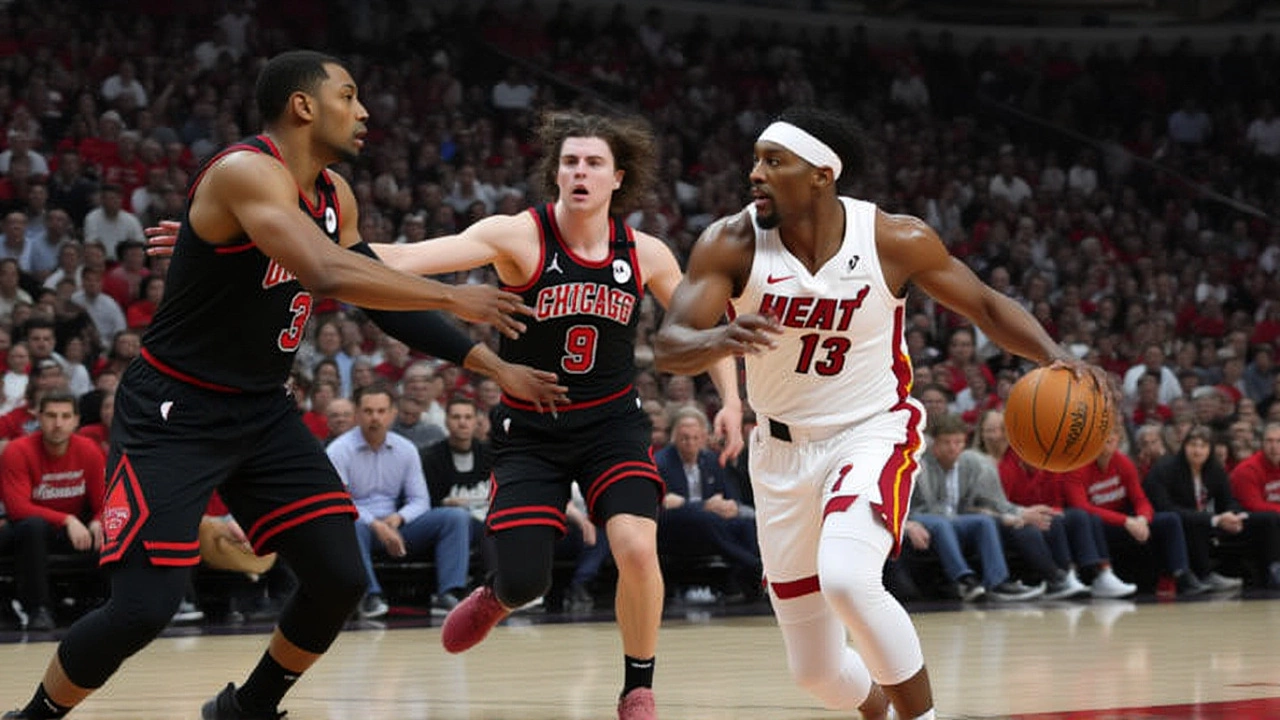The Miami Heat didn’t just beat the Chicago Bulls—they dismantled them. On Friday, November 21, 2025, at the United Center in Chicago, Miami rolled to a stunning 143-107 victory in an Emirates NBA Cup matchup, turning what was expected to be a competitive game into a statement performance. Center Kel'el Ware led the charge with a dominant 20 points and 14 rebounds, adding two steals to anchor Miami’s inside-out attack. The Heat’s fourth-quarter explosion—41 points—was the knockout punch, sealing the largest deficit of the season for Chicago and extending Miami’s winning streak to three games.
From Slow Start to Savage Finish
Miami didn’t come out blazing. They scored 36 points in the first quarter, a solid but not spectacular total. But by the second, the Bulls’ offense began to unravel. Chicago managed just 20 points in the second frame—their lowest-scoring quarter of the season. Meanwhile, Miami kept chipping away, adding 34 points to take a 70-52 lead into halftime. The gap wasn’t insurmountable, but the rhythm had shifted. The Bulls, known for their drive-and-kick motion, looked confused, their passes intercepted, their drives smothered. By the third quarter, the Heat’s defensive intensity became impossible to ignore. As one YouTube analysis noted at the 0:462 timestamp, they were "the number one pace team in the league," with "high deflections, high fast break." And it showed. Miami forced turnovers, turned them into transition threes, and never let Chicago settle. When the Bulls finally cut the lead to eight in the third, it was their last hope. The Heat answered with a 12-2 run to close the period, and by the time the fourth quarter began, the United Center was eerily quiet.Ware’s Breakout, Dosunmu’s Fight
For Miami, Kel'el Ware was the revelation. At just 21 years old, the second-year center out of Oregon State isn’t flashy, but he’s relentless. His 14 rebounds included seven on the offensive glass—critical second-chance points that kept Miami’s offense flowing. He didn’t shoot lights out (8-of-15), but his physicality disrupted Chicago’s interior defense. When the Bulls tried to double-team him, he found open shooters like Norman Powell, who added 19 points and two steals. For Chicago, Ayo Dosunmu fought valiantly. The 23-year-old point guard dropped 23 points and four assists, hitting three three-pointers and carrying much of the offensive load. But even his best efforts couldn’t overcome Miami’s relentless pace. At the 0:398 timestamp in the game transcript, the announcer summed it up: "Miami’s biggest lead of the night—and the Bulls’ largest deficit of the season." That line stuck. This wasn’t just a loss. It was a wake-up call.
Standings Shift as Heat Climb Eastern Conference Ladder
The win pushed Miami to a 10-6 record (.625 winning percentage), per ESPN Australia’s November 22 update, giving them a three-game winning streak and putting them just one game behind the Cleveland Cavaliers (11-6) and two behind the league-leading Detroit Pistons (13-2). The Atlanta Hawks and Orlando Magic sat tied at 9-7, one game behind the Heat. There’s a slight discrepancy in the standings: ESPN UK reported Miami at 9-6 after the game, suggesting their data was pulled before the final buzzer. That’s not unusual—time zones and update delays cause minor mismatches. But the trend is clear: Miami is heating up. They’re now the most active team in transition, averaging 122.3 possessions per game, the highest in the NBA this season.What This Means for the Rest of the Season
This isn’t just about one game. It’s about identity. The Heat, long criticized for playing too slow under Erik Spoelstra, have reinvented themselves. They’re not just fast—they’re aggressive. They’re not just scoring—they’re forcing mistakes. Their defensive rating has dropped to 108.4, now top-five in the league. Ware’s emergence as a rim protector and rebounder gives them a new dimension they’ve lacked since Bam Adebayo’s injury last season. Meanwhile, the Bulls look lost. They’re 8-7, but their defense is porous, their bench is lifeless, and their offense stalls without Dosunmu on the floor. They’re still a top-10 offensive team, but they’re 27th in defensive rating. That’s a recipe for early playoff exits. The question now isn’t whether they’ll make the playoffs—it’s whether they’ll survive the first round.
The Bigger Picture: NBA’s New Pace Revolution
Miami isn’t alone in this shift. The league is moving toward speed and pressure. The Phoenix Suns, Denver Nuggets, and Milwaukee Bucks are also pushing tempo. But Miami’s combination of length, switching defense, and transition execution is unique. They’re not just playing fast—they’re playing smart. Their average of 21 fast-break points per game leads the NBA. And with Ware, Powell, and Tyler Herro (who added 17 points off the bench in this game) all healthy, they’re becoming a true contender. The Emirates NBA Cup was meant to be a midseason showcase. But this game? This was a statement. The Heat aren’t just participating—they’re leading.Frequently Asked Questions
How did Kel'el Ware’s performance impact the game’s outcome?
Ware’s 20 points and 14 rebounds—especially seven offensive boards—gave Miami 12 second-chance points, directly fueling their 41-point fourth quarter. His presence in the paint forced the Bulls to collapse defensively, opening up open threes for Norman Powell and Tyler Herro. Without Ware’s interior dominance, Miami’s offense would have stalled against Chicago’s physical frontcourt.
Why did the Chicago Bulls collapse in the second quarter?
Chicago scored just 20 points in the second quarter—their lowest of the season—after shooting 3-of-14 from three and committing five turnovers. Miami’s defensive pressure, particularly from Ware and Powell, disrupted their drive-and-kick rhythm. The Bulls’ bench, led by Jalen Suggs, failed to provide any scoring punch, and their offensive flow completely broke down.
What does this result mean for Miami’s playoff chances?
With a 10-6 record and a three-game winning streak, Miami is now firmly in the top four of the Eastern Conference. Their pace, defensive versatility, and emerging frontcourt depth make them a dangerous matchup for any team. If they maintain this form, they could challenge Cleveland or Detroit for home-court advantage in the first round.
Why do ESPN Australia and ESPN UK have different records for the Miami Heat?
The discrepancy stems from update timing. ESPN Australia reported Miami at 10-6 after confirming the final score and stats, while ESPN UK’s data was pulled before the game’s final possessions were fully processed. This is common across global sports networks due to time zone delays and data feed lags—especially during late-night games in Europe.
Is the Emirates NBA Cup still meaningful this season?
Yes. Though it’s a tournament within the regular season, it impacts seeding and team momentum. Miami’s win here improves their standings tiebreakers and gives them valuable confidence heading into December. Teams that perform well in the Cup often carry that energy into the second half of the season—especially those like Miami, who are still refining their identity.
How does Miami’s current pace compare to past NBA champions?
Miami is currently averaging 122.3 possessions per game, the highest since the 2021-22 Phoenix Suns (120.1). While past champions like the 2016 Warriors or 2020 Lakers played slower, modern champions like the 2023 Nuggets thrived on pace. Miami’s model—fast transitions, elite deflections, and rim protection—is a new blueprint for winning, blending old-school defense with new-school speed.

Tulis komentar